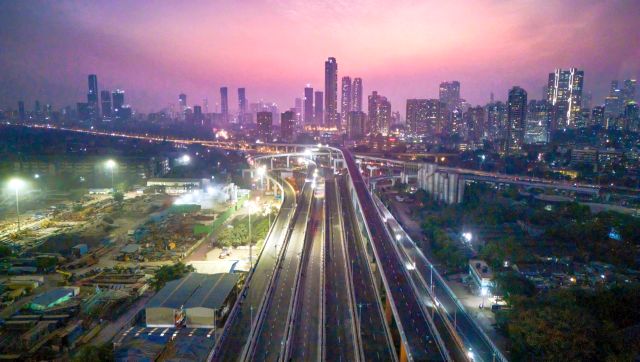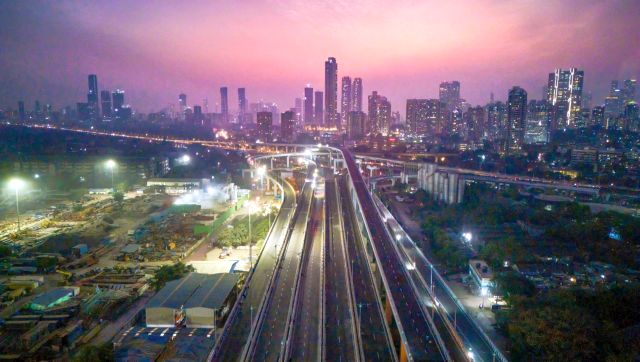The next time you think your builder is cheating you by not giving you access to the much desired pool or gym membership in your newly-acquired home, you can drag him to court. At least that’s what the new housing bill says.
But is the Maharashtra housing legislation, which was tabled in the legislative council on Tuesday, as toothless as it has always been or will it finally be tough on builders and empower home buyers by bringing in more transparency in the real estate sector?
The Housing Regulation and Development Bill 2012 aims to regulate and promote the construction, sale, management and transfer of flats on ownership basis as it makes it mandatory for builders to make complete disclosures regarding housing schemes or projects they are developing.
Will it stop builders from harassing and manipulating buyers?
Naushad Panjwani, Executive Director at property research firm Knight Frank India, says the new Development Control Rules (under which areas for balcony, flower-beds, terraces, voids, and niches would be counted in the floor space index) still allowed manipulation by the developers to play with the actual carpet size and saleable area. The builder could make many alterations with regard to amenities, configuration, and selling lesser carpet area than what was promised, etc.
There are numerous cases where consumers have complained about developers handing over apartments with less carpet/built-up area than promised. Under the regulator, a developer will be required to disclose information relating to size of plot along with details of carpet and utility areas of the apartment.
The Bill seeks to ensure that developers make their promises realistic and deliver projects on time
The new bill has makes it mandatory for builders to inform buyers before making any alterations. This means that the buyer can decline to take possession of a flat if he finds that the final project is different from what was proposed by the builder at the time of booking the flat. “Not only will the buyer get more transparency in the deals, but builders will also be more cautious about committing to buyers from now,” says Panjwani.
It also imposes penalties and fines for those builders who fail to comply with various provisions. If a builder fails to give possession within the period mentioned in the agreement between the buyer and builder, the regulator can impose a fine of up to Rs 10,000 for each day of delay. It can also cancel registration of a project if the developer does not have valid rights to the land.
The initiative will also help prevent commercial utilisation of open spaces like recreation ground, parks, etc., thereby helping end-users utilise all the benefits stated by the developer and help check consumption of any unauthorised additional usage of FSI on the project, explained Anshul Jain, CEO, DTZ - India.
One of the big changes introduced is that the developer will now have a defect liability period of five years.
The builder will be held responsible for any structural defects or exterior flaws in the building. This means developers would have to make up for all the defects in the construction of the building for free! As a result, developers would refrain from using sub-standard quality of construction material.
True disclosure of land title
Developers often withhold critical information on title clearance of land proposed to be developed. A real estate regulator makes it a prerequisite for a developer to make full disclosure on nature of land title, number of flats going to be built, the floor space index (FSI) applicable for a particular housing project, and how they are going to finance the project, among other clauses. This helps a consumer to take informed decisions prior to entering into a transaction with the developer.
The Bill prohibits builders from selling or advertising a housing scheme before it gets formal regulatory approval
Developers, not just the small players but even the biggest ones like DLF or Unitech, are known to sell flats during the under-construction period, even without getting the necessary approvals in order to meet liaisoning and approval costs and improving their balance-sheets. But with the authority prohibiting advertising and selling of apartments before registration with the housing regulatory authority, the cash flows of realtors will be under pressure, DTZ’s Jain told Firstpost. But does this address the problem of speculation? To some extent. Knight Frank’s Panjwani says even though the bill is well-drafted, speculators will surely find loopholes as the bill does not hold brokers or investors liable. “The known speculators know how to play with law, but genuine buyers will not enter the market just to make a quick buck,” he explained.
However, Pankaj Kapoor, MD at property research firm Liasas Foras, thinks otherwise as the promoter can now take a maximum advance of only 20 percent of the sale price prior to entering into a written agreement for the sale of property.This will prevent the bulk purchases which are used to make short-term gains. Further, interest rates on refund of amounts already received are capped at 15 percent. This will create hurdles for sale and buyback financing arrangements, as prevalent in the industry.
“Earlier developers would allot flats in bulk and use the initial booking amount for taking more loans. They would then use these flats as security. But now that the interest rate has been capped at 15 percent, buyers will not have an incentive to finance the developers, which should bring down the speculation in the realty market,” he said.
But does the bill address the problem of black money?
The bill does address the issue of black money to a certain extent. " It will not only keep investors at bay but will also motivate developers to be more cautious while doing deals," said Kapoor.
Bill ensures financial prudence
The Bill also prevents the builder from giving possession of flats to buyers till a certificate stating whether the building is fit for occupation is obtained from the local authority. “The impact of the bill will be significant since buyers will know that their money is going into the project they are buying into, and not elsewhere. But it does not address the issue of approval delays in Mumbai due to which projects get held up,” said Anuj Puri, Chairman & Country Head, Jones Lang LaSalle India. Moreover, penal clauses for project delays can still give significant elbow room for developers to renegotiate project delivery timelines, a key grouse of home buyers, said Edelweiss in a report today.
Cost of unorganised funding may increase
Even though the bill may usher in more transparency for equity investors, the cost of HNI funding may increase as the bill also contains provisions that mandate signing and registering an agreement with the buyer if the developer has collected more than 20 percent of the sale value as advance, increasing transaction costs for the bulk buyer (who eventually looks to sell it for a profit).
But is the bill a game changer for the industry?
The Bill is a well-drafted one, but the success of it depends on its implementation and the ability to prosecute builders for their faulty practices. Although it aims to fix the accountability of developers and provides consumers with a platform for fast paced resolution of disputes, a regulator is not going to solve the problem of an unorganised sector. " We need a Sebi-like solution in realty too," said Knight Frank’s Panjwani.


)




)
)
)
)
)
)
)
)